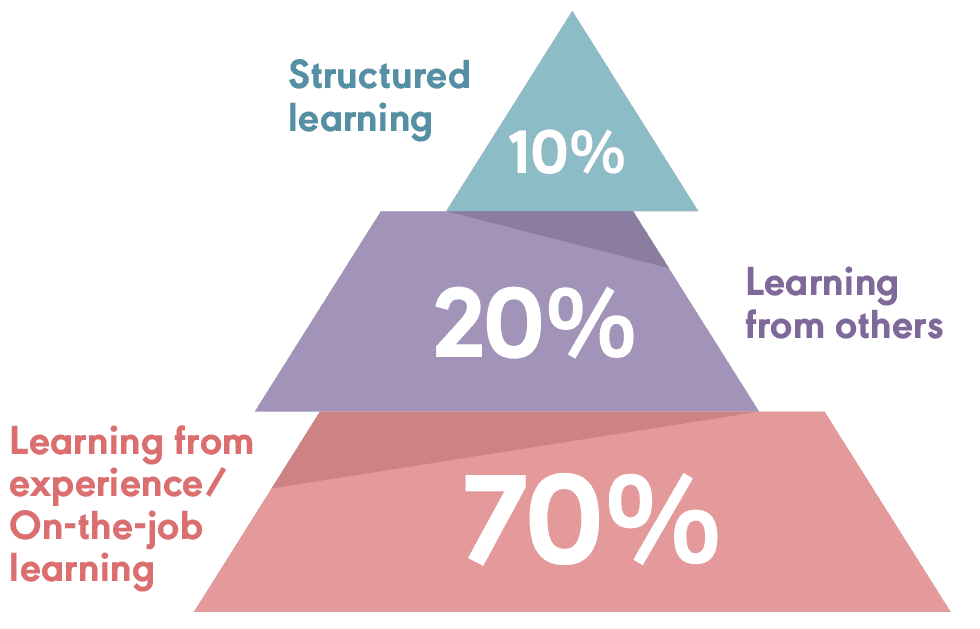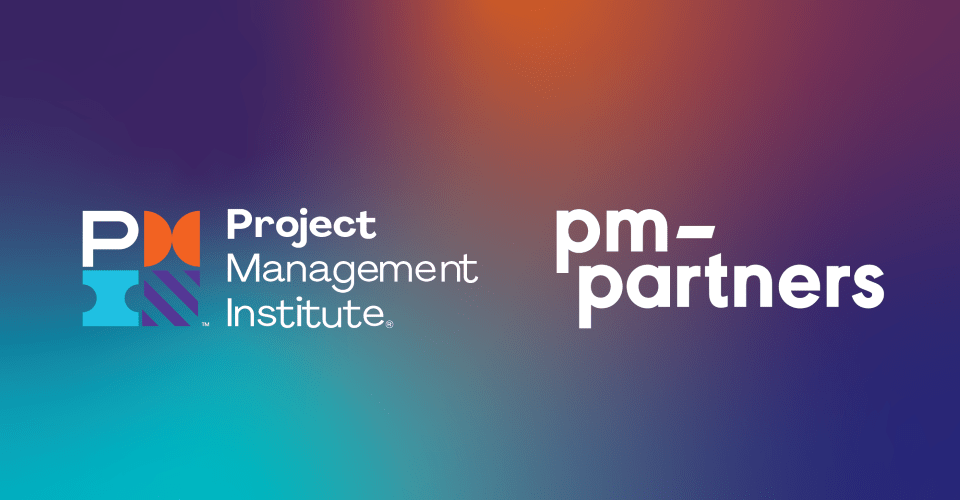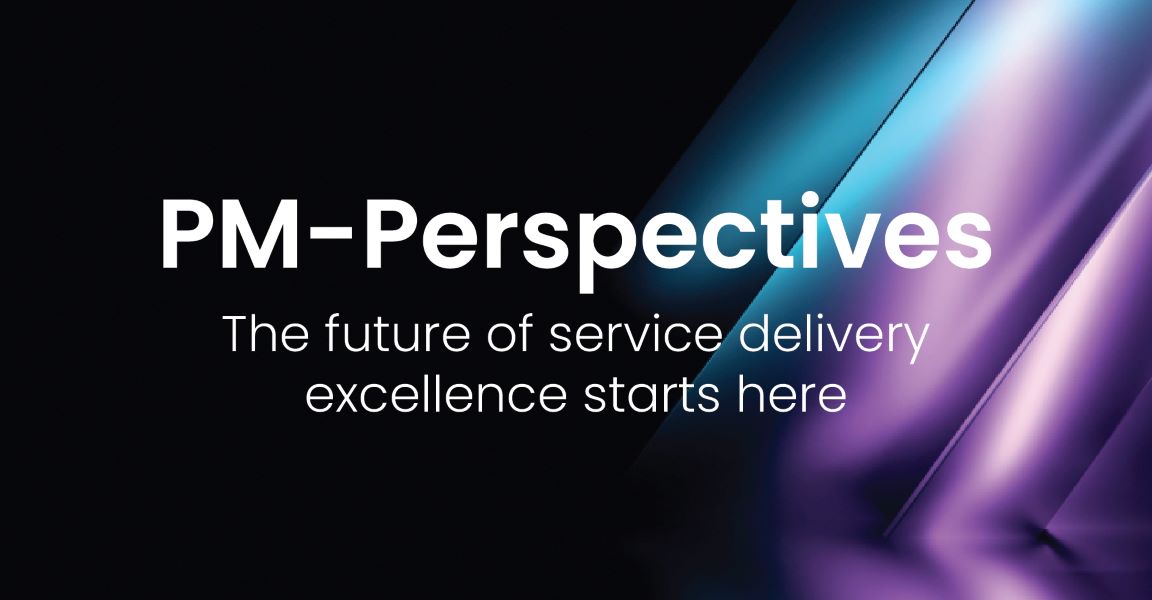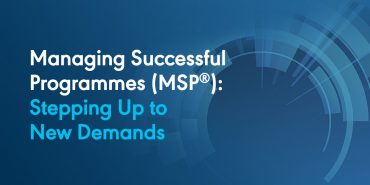Beyond training: how capability uplift can optimise team performance

Uplifting your team’s capabilities means going beyond training; in fact, the most effective program combines training, coaching and plenty of on-the-job experience. Here’s how an effective capability uplift program can optimise your team’s performance – and combat the talent shortage at the same time.
In a recent industry survey, 73 per cent of project professionals indicated that their initiatives experienced staff shortages, while 52 per cent said they “suffered from delays in sourcing key roles or skills critical to projects”.
It’s clear that good talent is hard to find, so one strategy that delivery leaders and organisations are keen to get right is developing talent from within through capability uplift. But how is this different to training? What does a good capability uplift program look like? And what outcomes should organisations expect?
Why capability uplift?
Capability uplift is the process of ensuring the knowledge, skills and experience of your team members matches the requirements of the roles they’re in, or the roles they’re moving into. It goes beyond training and education and identifies the core competencies that are needed to optimise delivery performance. An effective program pinpoints capability gaps and then takes a targeted, holistic approach to addressing areas of shortfall and driving measurable improvements.
In an ideal world, an organisation would have a pipeline of team members advancing their capabilities in successive periods. Unfortunately, due to a combination of factors – burnout, the effects of Covid-19, and a large cohort of project professionals reaching retirement age to name just a few – high attrition rates have contributed to a talent shortage. This makes the success of your capability uplift program a key part of the success of your organisation’s delivery strategy.
Capability uplift goes beyond training
One common misconception about capability uplift is that it centres on training. In fact, training should comprise just 10 per cent of your program; 20 per cent should be devoted to coaching/learning from others and 70 per cent to experience.

- Training may consist of formal education programs focused on project management methodologies or specific technical skills.
- Coaching is about employing domain experts to guide the team toward better performance. An effective coach is someone who encourages and enables team members to align themselves with best practice rather than someone who simply leads the way. Peer-to-peer coaching – as well as coaching from a bona fide coach – also plays an important role.
- Experience is related to on-the-job skills application, which helps to embed the learning, and has a material effect on both the team’s performance and the organisation.
Building an effective capability uplift program
Capability uplift requires thorough planning to ensure the organisation understands its requirements, evaluates its team’s current capabilities and develops a process to fill the capability gaps. An effective capability uplift program should:
- Define the organisation’s goals. According to a survey of HR professionals, just 46 percent say their current learning strategy includes and aligns with business objectives. Identifying the organisation’s goals and objectives will help to define its requirements, which you can then use to align with your talent and learning and development strategy.
- Undergo a capability assessment. This assessment should evaluate the current skills, knowledge and experience in the team and any capability gaps, in order to identify areas for improvement and provide hard metrics. We recommend bringing in an independent assessor to ensure the evaluation looks holistically at a team level in the first instance, as this helps to avoid the distrust and personal bias that can arise when you focus on individual performance data.
- Include targeted learning. Targeted learning focuses on filling specific skills gaps using a combination of formal and informal training, from workshops on specific methodologies to coaching and learning strategies that include applied skills and knowledge, for example using live case studies, active projects and other real-life scenarios. This will help you align your capability uplift program with your specific business needs – and your employees’ goals.
- Track and measure progress. As with any program, tracking and measuring progress will help you identify which parts of the program are working, and what requires reconsideration and improvement. We recommend assessing behaviour over knowledge, as behaviour is often a lead indicator; and it’s important to note that non-technical behaviours, such as communication and negotiation, can be just as significant in the performance of teams as technical skills.
- Collectively develop an improvement plan. Team members should be encouraged to work as a collective to develop and execute their own improvement plan. Host a facilitated workshop with the team to present and analyse the data, and have them brainstorm specific improvement actions they can take before assigning owners and dates. Teamwork not only fosters a higher level of commitment but drawing on the knowledge and experience of their peers and using active learning strategies helps to lift understanding and confidence. Discuss, shortlist, review and finalise the plan to ensure it still aligns with your business requirements.
- Embed and refine learning activities. Psychologist Hermann Ebbinghaus developed a theory he called the Forgetting Curve, where learners’ retention of material drops exponentially as time elapses unless they undergo regular revision. With this in mind, your team should have regular opportunities to revise material through activities such as refresher workshops, micro-training, or more specialist coaching. Likewise, it’s important to assess the progress of your uplift program at frequent intervals and refine as necessary to drive ongoing performance improvements.
Benefits of an effective capability uplift program
Done properly, your capability uplift program should deliver the following tangible results:
- Drive the right behaviours
- Encourage proactive self-improvement
- Improve teamwork
- Deliver measurable outcomes.
You may also note some hidden benefits, including strengthened networking through support and informal communities of practice, as well as cross-departmental learning that enhances organisation-wide improvement.
At a time when talent shortages are negatively impacting project delivery, a good capability uplift program can help organisations regain the upper hand, building capacity, capability and loyalty within existing teams. Investing in the skills of your people is an effective solution to the talent shortage and a proven way to ensure alignment between capability and your business goals, while nurturing a culture of excellence. Doing so will also help to boost your reputation as an employer and attract new talent into the fold.
Learn more about enhancing your team’s performance with our capability uplift framework or other in-house training and uplift services. Contact our experts with your requirements or call 1300 70 13 14 today.








